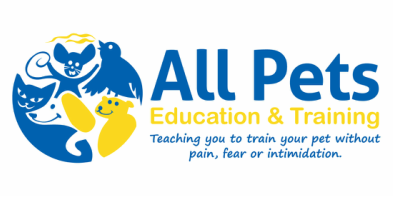Easter Dangers and your pets
Easter – the time of chocolate, Easter egg hunts, gatherings and short holidays.
However, during this long weekend, several of our canine & feline buddies will be put at risk. Resulting in an Emergency trip to your vet and costing $$$$.
Some things to think about:
COMMON EASTER DANGERS
Easter Egg Hunt
If you are planning an Easter egg hunt, make sure your pets do not have access and count to make sure all eggs are found before allowing your pet back into the hunt area.
Many pets will eat the hidden treasures and unfortunately the theobromine & caffeine found in chocolate can make your pet very sick.
Click HERE to use the Chocolate Toxicity Calculator
However, during this long weekend, several of our canine & feline buddies will be put at risk. Resulting in an Emergency trip to your vet and costing $$$$.
Some things to think about:
- Have you considered what could make your pet sick?
- Do you know when/if your regular vet clinic is open over the Easter period?
- Do you know where the afterhours vets are located?
COMMON EASTER DANGERS
Easter Egg Hunt
If you are planning an Easter egg hunt, make sure your pets do not have access and count to make sure all eggs are found before allowing your pet back into the hunt area.
Many pets will eat the hidden treasures and unfortunately the theobromine & caffeine found in chocolate can make your pet very sick.
Click HERE to use the Chocolate Toxicity Calculator
When to see your vet
If your pet has chewed, swallowed or potentially chewed/swallowed any of the above, it is vital your pet is seen by a veterinarian immediately.
You should take your pet to the vet if he/she is unwell. Don’t wait for your regular clinic to re-open as even a delay of 24 hours could put your pet’s life at risk.
If your pet has chewed, swallowed or potentially chewed/swallowed any of the above, it is vital your pet is seen by a veterinarian immediately.
You should take your pet to the vet if he/she is unwell. Don’t wait for your regular clinic to re-open as even a delay of 24 hours could put your pet’s life at risk.
Symptoms of Pancreatitis include:
Symptoms of Chocolate Toxicity:
The more cocoa that is in the chocolate the more toxic it will be.
Cooking chocolate is seven times more toxic than milk chocolate.
Seen within hours of ingestion
Symptoms of Intestinal Obstruction:
Symptoms of Easter lily Poisoning
The entire plant is toxic. Cats are particularly susceptible to poisoning
Symptoms of Xylitol Poisoning
Seen within 30 minutes and up to 12 hours
Symptoms of Sultana/Grape/Raisin toxicity
- Lethargy
- Depression
- Reluctance to eat
- Vomiting (more common in dogs)
- Diarrhoea (more common in dogs)
- Abdominal pain
- Fever (dogs)
- Fever or subnormal temp (cats)
- Dehydration
- Cardiac arrhythmias
Symptoms of Chocolate Toxicity:
The more cocoa that is in the chocolate the more toxic it will be.
Cooking chocolate is seven times more toxic than milk chocolate.
Seen within hours of ingestion
- Excitability
- Increased heart rate
- Tremors or shaking
- Vomiting
- Diarrhoea
- Seizures
- DEATH
Symptoms of Intestinal Obstruction:
- Abdominal pain
- Praying position
- Reluctance to eat
- Vomiting
- Shock
- Depression
Symptoms of Easter lily Poisoning
The entire plant is toxic. Cats are particularly susceptible to poisoning
- Vomiting
- Kidney failure
- Off food
- Depression
- No urination
Symptoms of Xylitol Poisoning
Seen within 30 minutes and up to 12 hours
- Vomiting
- Depression
- Difficulty Walking
- Seizures
- Liver Failure
- DEATH
Symptoms of Sultana/Grape/Raisin toxicity
- Depression
- Vomiting
- Pain
- Diarrhoea
- Off food
- Increased drinking or urination
Going away?
You may be going away on holidays and taking your pets. Please consider the following, and ensure your pet has current up to date Identification with numbers that finders will be able to contact you or another responsible friend or family member on.
If you are traveling with your pet, make sure they are secure in the car. Cats should be in crates and dogs in crates or harnesses. You can be fined for having an unrestrained pet. Not only is it dangerous for them, but they can also become projectiles and injure other car occupants should an accident occur.
When travelling, take water for your pet, and for dogs you should stop and allow them somewhere to toilet and walk around every 2 hours. For cats, unless they are harness and lead trained do not remove them from the car until a secure enclosure is available. Provide access to a litter tray every few hours and take plenty of spare towels or bedding and plastic bags should an accident occur in the carry crate.
Also be aware that some pets can be nervous around new situations and people.
People – strict supervision
Some pets may become frightened or nervous around new people, loud noises etc. Set up somewhere for them that they are safe. Crates or a cool quiet room are a good idea – ensure food, enrichment toys and water are available.
Active supervision with pets and children (an adult within arm’s reach at all times). Good websites to review are:
www.familypaws.com/resources
http://drsophiayin.com/blog/entry/kids-and-dogs-how-kids-should-and-should-not-interact-with-dogs
Familarise yourself with k9 and feline body language – take steps to remove your pet from a situation if they are showing signs of concern.
http://www.allpetseducationandtraining.com.au/body-language.html
Supervise all guests and advise them on arrival not to sneak your pets any leftovers or treats without first asking your permission. Just think, if 20 guests sneak your small dog just a few morsels of food each you will quickly end up with a porky pooch and possibly a sick one too.
Other pets
You can keep your pet safe with forward thinking and careful planning.
Some useful numbers:
RSPCA Lost and Found 07 3426 9999
RSPCA Animal Ambulance 1300 852 188
Brisbane City Council 07 3403 8888
Logan City Council 1300 156 426
Moreton Bay Regional Council 07 3205 0555
Animal Emergency Service (Springwood) 07 3423 1888
Animal Emergency Service (Carrara) 07 5559 1599
Animal Emergency Centre (Woolloongabba) 07 3456 0500
Manly Road Veterinary Hospital 07 3396 9733
BVSC Emergency (Albany Creek) 07 3264 9400
Pet Emergency (Stafford Heights) 07 3359 5333
References
Allan, T. (2014). Body Language. [online] All Pets Education and Training. Available at: http://www.allpetseducationandtraining.com.au/body-language.html [Accessed 28 Nov. 2014].
Familypaws.com, (2014). Family Paws-Family Paws resources. [online] Available at: http://familypaws.com/resources/ [Accessed 28 Nov. 2014].
Khan, S. (2014). Analgesics (Toxicity): Toxicities from Human Drugs: Merck Veterinary Manual. [online] Merckmanuals.com. Available at: http://www.merckmanuals.com/vet/toxicology/toxicities_from_human_drugs/analgesics_toxicity.html [Accessed 25 Jan. 2015].
Tilley, L. and Smith, F. (2000). The 5-minute veterinary consult. Philadelphia: Lippincott Williams & Wilkins.
Yin, S. (2014). Kids and Dogs: How Kids Should and Should Not Interact with Dogs. [online] Dr. Sophia Yin. Available at: http://drsophiayin.com/blog/entry/kids-and-dogs-how-kids-should-and-should-not-interact-with-dogs [Accessed 28 Nov. 2014].
You may be going away on holidays and taking your pets. Please consider the following, and ensure your pet has current up to date Identification with numbers that finders will be able to contact you or another responsible friend or family member on.
If you are traveling with your pet, make sure they are secure in the car. Cats should be in crates and dogs in crates or harnesses. You can be fined for having an unrestrained pet. Not only is it dangerous for them, but they can also become projectiles and injure other car occupants should an accident occur.
When travelling, take water for your pet, and for dogs you should stop and allow them somewhere to toilet and walk around every 2 hours. For cats, unless they are harness and lead trained do not remove them from the car until a secure enclosure is available. Provide access to a litter tray every few hours and take plenty of spare towels or bedding and plastic bags should an accident occur in the carry crate.
Also be aware that some pets can be nervous around new situations and people.
People – strict supervision
Some pets may become frightened or nervous around new people, loud noises etc. Set up somewhere for them that they are safe. Crates or a cool quiet room are a good idea – ensure food, enrichment toys and water are available.
Active supervision with pets and children (an adult within arm’s reach at all times). Good websites to review are:
www.familypaws.com/resources
http://drsophiayin.com/blog/entry/kids-and-dogs-how-kids-should-and-should-not-interact-with-dogs
Familarise yourself with k9 and feline body language – take steps to remove your pet from a situation if they are showing signs of concern.
http://www.allpetseducationandtraining.com.au/body-language.html
Supervise all guests and advise them on arrival not to sneak your pets any leftovers or treats without first asking your permission. Just think, if 20 guests sneak your small dog just a few morsels of food each you will quickly end up with a porky pooch and possibly a sick one too.
Other pets
- If your pet is having “friends” over during the Easter long weekend or your pet is going to another pet’s house – ensure you provide adequate supervision.
- Dog fights, are not a pleasant experience for anyone, and you may be injured whilst trying to break them up.
You can keep your pet safe with forward thinking and careful planning.
Some useful numbers:
RSPCA Lost and Found 07 3426 9999
RSPCA Animal Ambulance 1300 852 188
Brisbane City Council 07 3403 8888
Logan City Council 1300 156 426
Moreton Bay Regional Council 07 3205 0555
Animal Emergency Service (Springwood) 07 3423 1888
Animal Emergency Service (Carrara) 07 5559 1599
Animal Emergency Centre (Woolloongabba) 07 3456 0500
Manly Road Veterinary Hospital 07 3396 9733
BVSC Emergency (Albany Creek) 07 3264 9400
Pet Emergency (Stafford Heights) 07 3359 5333
References
Allan, T. (2014). Body Language. [online] All Pets Education and Training. Available at: http://www.allpetseducationandtraining.com.au/body-language.html [Accessed 28 Nov. 2014].
Familypaws.com, (2014). Family Paws-Family Paws resources. [online] Available at: http://familypaws.com/resources/ [Accessed 28 Nov. 2014].
Khan, S. (2014). Analgesics (Toxicity): Toxicities from Human Drugs: Merck Veterinary Manual. [online] Merckmanuals.com. Available at: http://www.merckmanuals.com/vet/toxicology/toxicities_from_human_drugs/analgesics_toxicity.html [Accessed 25 Jan. 2015].
Tilley, L. and Smith, F. (2000). The 5-minute veterinary consult. Philadelphia: Lippincott Williams & Wilkins.
Yin, S. (2014). Kids and Dogs: How Kids Should and Should Not Interact with Dogs. [online] Dr. Sophia Yin. Available at: http://drsophiayin.com/blog/entry/kids-and-dogs-how-kids-should-and-should-not-interact-with-dogs [Accessed 28 Nov. 2014].






